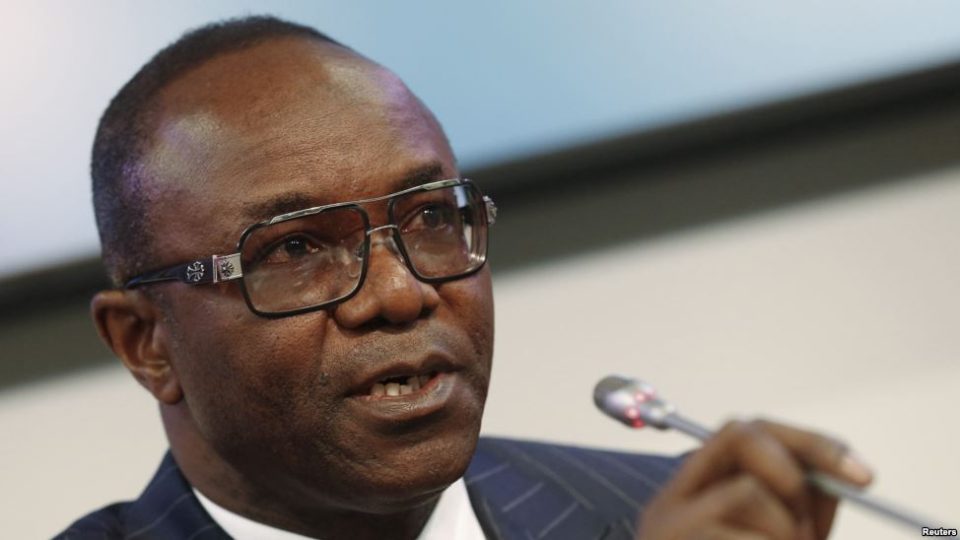
Minister of State for Petroleum, Dr Ibe Kachikwu, has declared that there is no plan to sell any of the refineries to foreign investors just as he said that $700million would be needed to fix refineries.
Kachikwu had earlier on Friday visited Warri, Delta State, to inaugurate the multibillion naira crude oil underground pipeline from Escravos to Warri and Port Harcourt refineries.
He said investors had been coming to fund and offer technical support for the refineries as the country lacked the financial wherewithal to make them function optimally.
He made this known while speaking at the recommissioning of the refining crude line of the Port Harcourt Refining Company (PHRC), Alesa-Eleme, Rivers State, on Saturday.
Kachikwu, who is also the Group Managing Director of the Nigerian National Petroleum Corporation (NNPC), said $700 million would be needed to make the three refineries work up to 90 per cent capacity.
He also apologised to Nigerians for the agonies they have been experiencing in the wake of the persistent fuel scarcity, assuring that there would be adequate fuel supply across the country within the next 10 days.
“We are not inviting foreign partners to take over the refineries; we do not have the funds. Rather, they are coming with the funds and also to offer technical support.
“Even now that they [the refineries] are working, they are probably working to about 60 per cent capacity. So, we need to upgrade these refineries and let them develop to the point where they can perform up to 90 per cent capacity.
“Total investment (we will need for that) is up to $700 million and we don’t have that. Let us be honest about it.
“So, the best thing to do is to find a very creative way to bring in investors who will come in, work with our team here who have the skills, reactivate and upgrade facilities in this place and help us provide technical support and we will pay through the flow-out of the refined products over time.
“There is a lot still to be done. I told you I will never give up. We have signed the advertisements for investors to come in. There is no confusion about what they are coming to do.”
“They are not coming to run the refinery. They are coming to provide funds to take our performance on these refineries to 90 per cent and to provide us with technical skills. So, the areas of intervention will be funding and technical support”, he said.
He said the three refineries were currently producing 12 million litres of PMS daily, which is 60 per cent capacity, adding that they would be producing 20 million litres by the time they upgraded to 90 per cent capacity.
The petroleum minister also noted that Nigerians were presently consuming 45 million litres per day, a far cry from the 12 million-litre daily production.
He apologised to Nigerians over the fuel crisis, especially in the North, Abuja and Lagos, assuring that there were long term policies put in place to put an end to fuel scarcity.
“It is going to take time because we are addressing a long term solution. There is a lot of policy issues coming in to ensure that we resolve this and we would not need to go back to the pipes over again.
“I apologise to Nigerians, who have suffered all this time because of product supply, especially those in the North who bearing a big brunt of this [fuel scarcity], particularly Abuja, Kano and Lagos, who are the key consumer cities.
But we are beginning to recognise now that Lagos is easing off now and Abuja is doing the same thing. Once Kaduna begins to produce, the North will see a lot of improvement.
“Over and above that, we are putting long term policies in place to ensure that, while smaller marketers go out and do their stuff, we can then be the key suppliers for the rest of the country.
“If the processes are there and relationship is created, then these refineries will work, even if I am not there… That is what we need to be doing. We owe Nigerians the duty to ensure that the refineries are working. We owe Nigerians that; we can’t give up.
“When we tried this approach, people said ‘What is going on?’ Today, it is working. We are going to provide more security.
“For the first time, the refineries will get their crude, pay for it, they will sell their products and they will earn the income from that product and then they can develop and continue to maintain the refineries, even after this intervention is over.
“That will enable us to keep the refineries on. This is happening when we absolutely need a help to clean out all the queues.
“I always believe in the capacity of our contractors to deliver on that the refineries, working night and day.
“As we pumped out crude today, we are just looking at it happening. Port Harcourt is back in production, Warri is back in production. Kaduna, today, is receiving and will soon be back in back in production.
Source: Tribune
